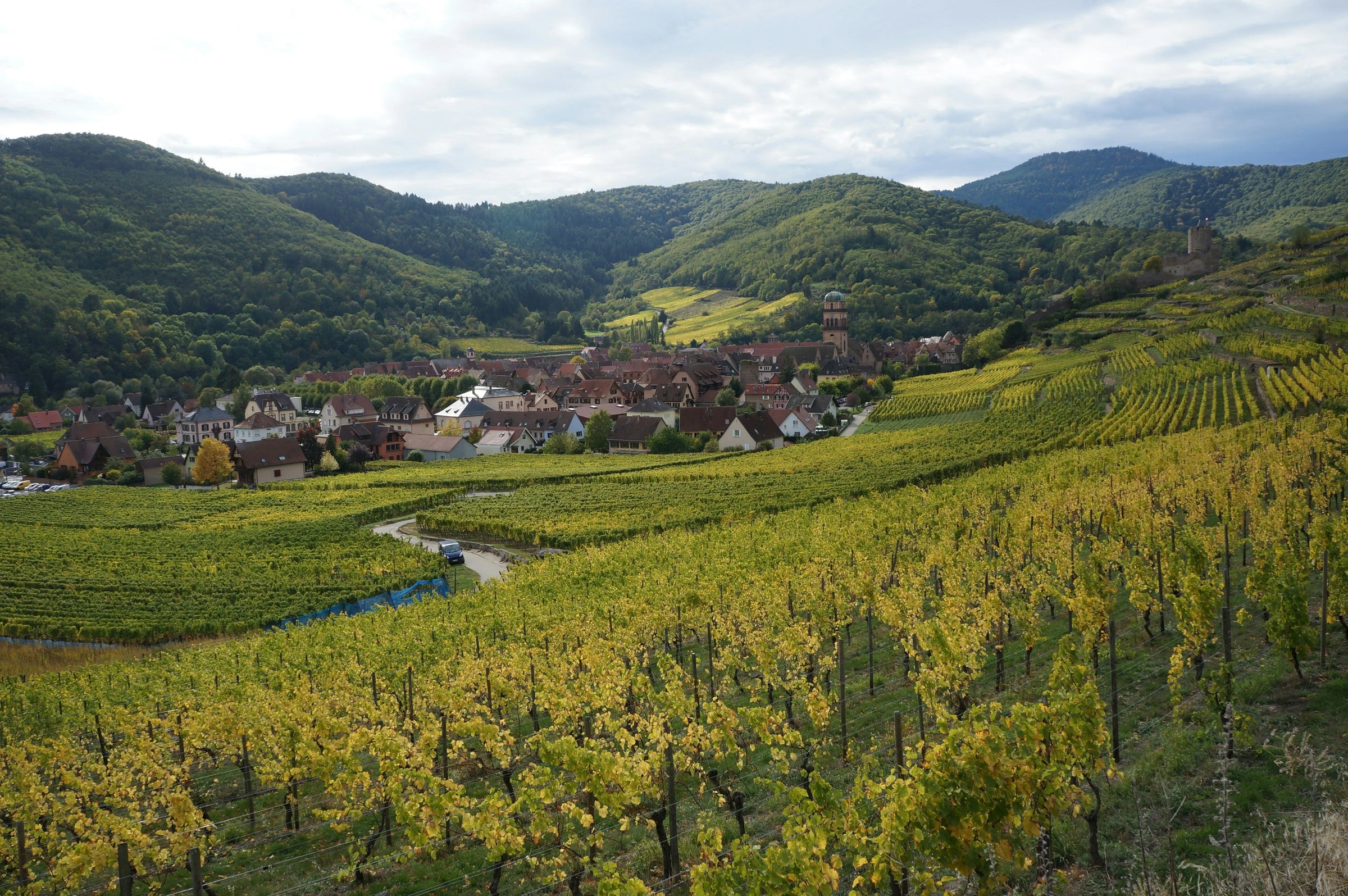
0 products
Sylvaner Wine
0 products
Sorry, there are no products in this collection.
Fast delivery throughout Europe & UK
Fast delivery throughout Europe & UK. Free shipping from €150 in France


Grown especially in Germany and the Alsace region of France, Sylvaner is an aromatic son of a gun : floral, mineral, and herbal - it really runs the gamut. Its crispness makes it the perfect pairing for a quiche, a charcuterie plate, fish or shellfish. Sylvaner is not too acidic, which brings out some interesting traits and flavors such as honey, dried or candied fruit. In a way, it is a great substitute for rosé. Finally, leave your other half at home because Sylvaner is the ideal partner for a picnic between friends.
Sylvaner is an emblematic white grape variety of the Alsace region, although its origins trace back much further in Europe. Its history, unique characteristics, and food-wine pairings make it an intriguing choice for lovers of light, dry white wine.
Origins and Development of Sylvaner
Originating from Austria, Sylvaner finds its first historical mentions in the vineyards of the 17th century. It then migrated to Germany, where it gained popularity, particularly in Franconia. It was not until the 19th century that it appeared in Alsace, a region where it thrives particularly well.
Alsace Sylvaner has established itself as one of the traditional grape varieties of Alsace wines, alongside the more famous Riesling, Gewurztraminer, and Pinot Gris. It is also cultivated anecdotally in other parts of the world, but it is in Alsace that it best expresses its characteristics.
Viticultural Characteristics and Climate Sensitivity
Sylvaner is a grape variety that adapts well to poor and eroded soils, allowing it to root deeply and draw the necessary nutrients to produce light, dry white wines. It is particularly sensitive to climatic conditions, preferring temperate climates with good sun exposure.
In terms of viticulture, Sylvaner is known for its precocity and disease resistance. However, it requires careful yield management to avoid diluting its flavors. Its compact clusters are prone to gray rot, necessitating constant vigilance.
Sylvaner or Riesling: When to Choose One Over the Other?
Choosing between Sylvaner and Riesling mainly depends on taste preferences and the desired food-wine pairings.
- Sylvaner: This grape produces light, dry white wines, often less aromatic than Riesling, with subtle notes of white fruits and a characteristic freshness. It pairs wonderfully with simple and fresh dishes, such as salads, seafood, or even raclette, where its minerality balances the richness of the melted cheese. The price of a Sylvaner is generally more affordable than that of Riesling, making it an attractive option for casual occasions.
- Riesling: In contrast, Riesling is often more aromatic and complex, with notes of exotic fruits, flowers, and sometimes petrol-like minerals. It offers a wide range of styles, from dry to sweet, and lends itself to more sophisticated food-wine pairings. A Sonoma Riesling, for example, may offer different characteristics from an Alsace Riesling, reflecting the unique terroir of each region. Riesling is ideal for accompanying more elaborate dishes, such as fish in sauce, spicy dishes, or even desserts.
The Alsace Sylvaner is a grape variety that deserves to be rediscovered for its qualities as a light, dry white wine and its varied food-wine pairings. Whether you opt for a Sylvaner or a Riesling, you are sure to find a wine that will enrich your meals and delight your taste buds.
For more information, check out our list of grape varieties!


